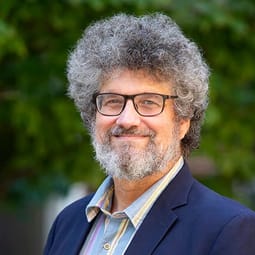
Jonathan V. Sweedler
James Eisner Family Endowed Chair of Chemistry, Professor of Bioengineering, Neuroscience, Physiology and Medicine, University of Illinois at Urbana Champaign, USA
False

James Eisner Family Endowed Chair of Chemistry, Professor of Bioengineering, Neuroscience, Physiology and Medicine, University of Illinois at Urbana Champaign, USA
Main research aims? The Sweedler group miniaturizes sample volumes for chemical measurements. We perform lipidomics, metabolomics and peptidomics measurements from individual cells and cellular domains and use these capabilities to understand cell to cell signaling across the domains of life.
How would you spend a $1 billion research grant? This funding level could enable a new national effort (think the human genome project) where I would be helping to lead one of the thrusts. I support Neil Kelleher’s idea to create a comprehensive proteoform atlas and tie this unmatched protein detail to the small molecule repertoire within cells. Can we use this chemical information to predict cell physiology and activity in health and disease?
Most memorable advice? While I am not sure it is the most memorable, a very useful bit of advice involved collaborative projects. One of my professors in graduate school made the following comment about collaborations. If you are ever unsure if a collaborator has done enough to be a coauthor on your manuscript, rest assured they are not in doubt that they belong. The professor went on to encourage us to have the difficult conversations that many avoid about co-authorship as the questions arise.
Receive the latest pathologist news, personalities, education, and career development – weekly to your inbox.

False
False
False